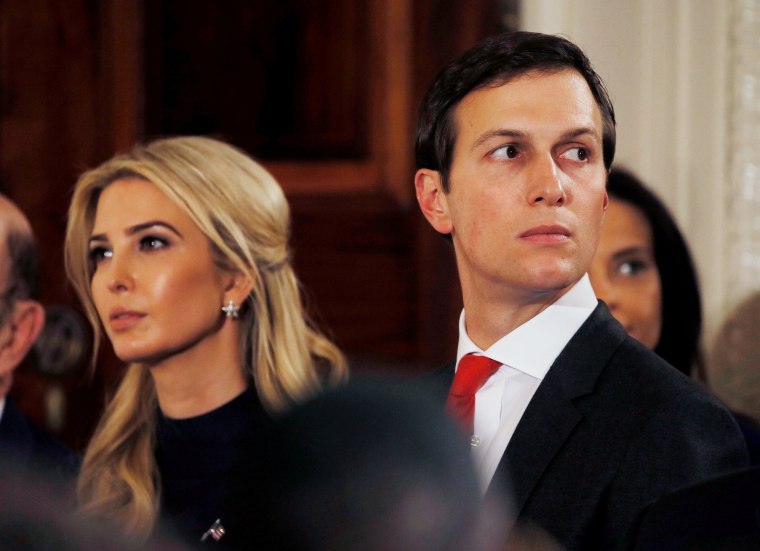One of the many problems with Donald Trump's approach to White House governance is the president's willingness to put enormous power into the hands of his young son-in-law. Despite his inexperience and lack of subject-matter expertise, Jared Kushner has been given a vast policy portfolio, which includes key duties related to international affairs.
For some officials abroad, that's created an opportunity of sorts. The Washington Post reported in February, for example, that officials in at least four countries -- the United Arab Emirates, China, Israel, and Mexico -- had "privately discussed ways they can manipulate" Kushner, exploiting, among other things, his inexperience.
The article added, "Officials in the White House were concerned that Kushner was 'naive and being tricked' in conversations with foreign officials, some of whom said they wanted to deal only with Kushner directly and not more experienced personnel."
Nearly a year later, the question is whether other countries may have come to similar conclusions. Take Saudi Arabia, for example.
Senior American officials were worried. Since the early months of the Trump administration, Jared Kushner, the president's son-in-law and Middle East adviser, had been having private, informal conversations with Prince Mohammed bin Salman, the favorite son of Saudi Arabia's king.Given Mr. Kushner's political inexperience, the private exchanges could make him susceptible to Saudi manipulation, said three former senior American officials. In an effort to tighten practices at the White House, a new chief of staff tried to reimpose longstanding procedures stipulating that National Security Council staff members should participate in all calls with foreign leaders.But even with the restrictions in place, Mr. Kushner, 37, and Prince Mohammed, 33, kept chatting, according to three former White House officials and two others briefed by the Saudi royal court. In fact, they said, the two men were on a first-name basis, calling each other Jared and Mohammed in text messages and phone calls.
According to the highly detailed New York Times report, Saudi officials very carefully cultivated the relationship with Kushner over the course of two years, starting in November 2016 -- the month Trump was elected. A Saudi delegation identified the presidential son-in-law at the time as someone with "scant knowledge about the region, a transactional mind-set and an intense focus on reaching a deal with the Palestinians that met Israel's demands."
It reached a point at which officials in the State Department and the Pentagon "began to worry" about the one-on-one interactions between Kushner and the Saudi crown prince.
One former White House official told the Times, "There was a risk the Saudis were playing him."
I'm reminded of a point Rachel emphasized on the show earlier this year: rules against nepotism exist for a reason.
